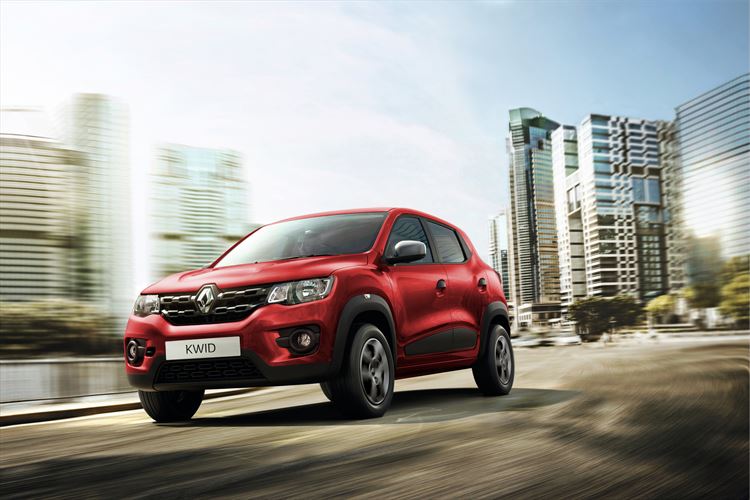A driver’s airbag was fitted, but no ABS, and the car still did horribly in any safety test anywhere.
Datsun was first to market with their GO, and the well-priced hatch was mercilessly slammed by almost every motoring journalist around the world for its zero-safety rating by the Global NCAP test body.

.
The result shocked the Global NCAP officials to such an extent that they asked Renault-Nissan Alliance to immediately withdraw GO from the various markets across the globe where it was sold.
A driver’s airbag was fitted, but no ABS (Anti-locking Braking System), and the car still did horribly in any safety test anywhere.
But this didn’t stop the little car selling in droves, much to the disgust of many motoring journalists.
Barely had the hate for the popular Datsun GO start to wane, and Renault launched its Kwid, which is the alliance twin of the GO. And take a guess what?
The Kwid has taken the vehicle market by storm with monthly sales exceeding expectations, and over 10 000 vehicles sold since its launch in late 2016.
The Kwid took a proud third position as one of South Africa’s 10 best-selling passenger cars of December 2017, with 1 120 units sold.
That’s a whole lot more cars than some manufacturers in SA sell across their entire range of vehicles.
So why are these cars so popular despite them being inherently dangerous in the event of an accident.
.
My answer is that the car is rather well priced, and comes with the likes of SAT NAV, Bluetooth audio and telephony, AUX & USB ports, is light on fuel, and has a proper long factory warranty.
And what this also buys a potential owner, is their own brandnew car with a warranty peace of mind that is not easily found when you buy a used car.
And yes, as said, they are not the safest cars on the road, but they sure as hell beat getting up at 3am to catch a bunch of taxis driven by suicidal madmen, or walking, or begging for a lift, just to get to work each day.
This all said, what is the new Renault Kwid AMT all about? Well, the big change is that the range now offers what Renault calls, “innovative Easy-R Technology and a revolutionary fivespeed AMT (Automatic Manual Transmission)”.
The dash mounted AMT dial has three modes – Reverse, Neutral & Drive, and is said to be designed to make driving effortless, and an advanced control unit automatically optimises gear shifting in accordance with driving conditions for smooth and regular acceleration.
.
This is all fine and well when shown in text, but in reality, it is a terrible transmission.
There is nothing smooth about the gear changing, and the delay between the gears changing is massive, and makes for a horrible time in the car when driving around the suburbs.
Once on the open road, and when the changing of gears is not required as often, then I found it quite okay.
But the irony is that this was never meant to be an intercity, high speed, highway km after km, eating car, but this is when the AMT transmission performs best.
Even the compact 1.0-litre three-cylinder Smart Control efficiency (SCe) engine that only produces a peak power of 50kW at 5 500 rpm and maximum torque of 91 Nm at 4 250 rpm, does a decent job of keeping the Kwid going.
And without even trying I returned an average fuel consumption of 5.3 litres per 100km, and when taking it easy on the highway this came down to close on the 4.4 litres per 100km claimed number.
So, like I said, this car is light on fuel, and will be easy on the pocket in this area too. Is it the safest car?
No. Is it the best driving car on the market?
.
No. And I have to say this straight, I would avoid the AMT version unless I really had to have a two-pedal car.
The manual versions are the pick of the range for me. Why Renault couldn’t just go with a conventional automatic transmission, I don’t know.
But just look around you the next time you venture beyond the safety and seclusion of your leafy suburb and take note of the number of old cars on our roads that have absolute no safety features fitted and are mostly unroadworthy to boot.
And add this to the fact that in SA, a flashy car, or even just having a car, is a status symbol, and you just might begin to understand why a car like Renault Kwid sells like it does, and rightly so.
The Renault Kwid model range comes standard with a five-year/ 150 000km mechanical warranty and a six-year anti-corrosion warranty. Services take place at 15 000km intervals. Optional service plans are available.
.
The model range also currently offers oneyear Comprehensive Insurance Cover, to further facilitate peaceof-mind driving.
Model Pricing
//
Download our app